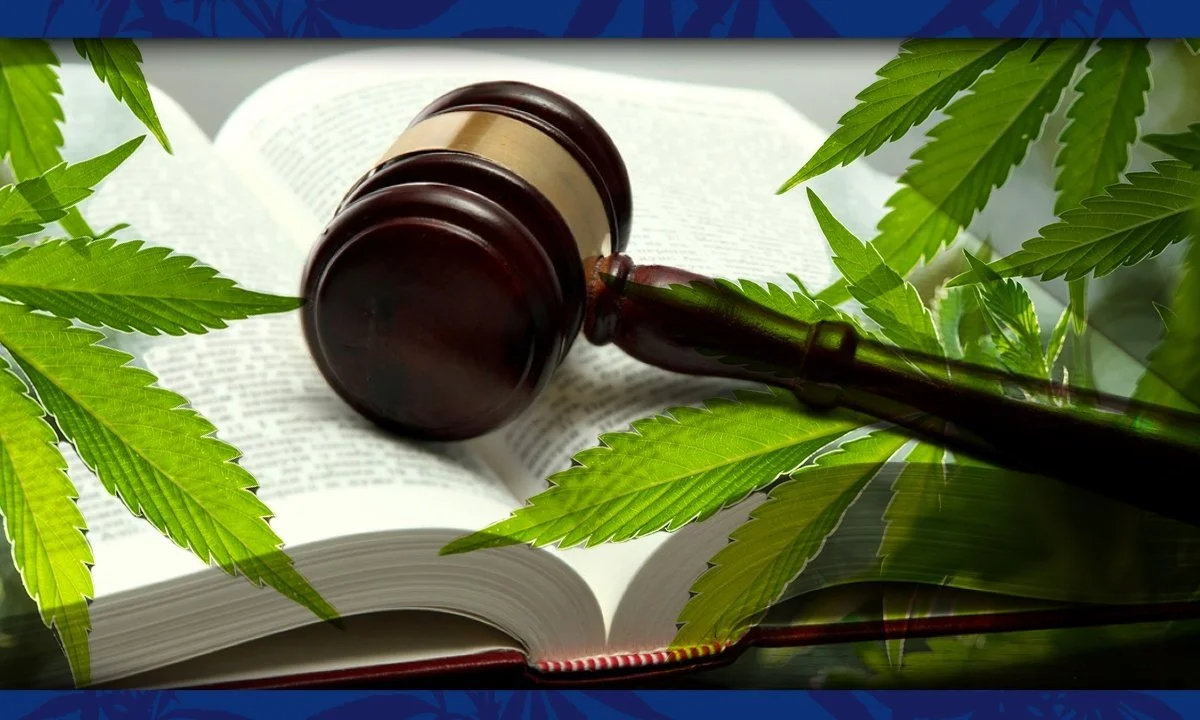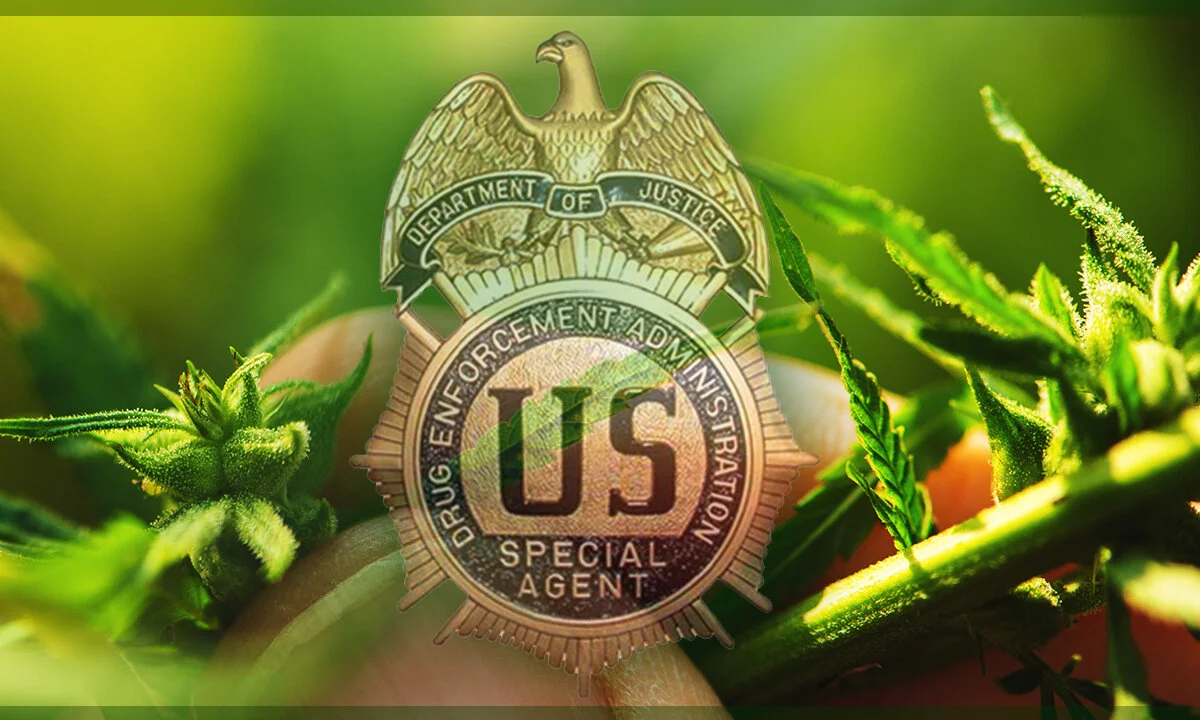Maine Congresswoman Chellie Pingree Introduces Hemp Advancement Act of 2022 to “Unburden the Hemp Industry”
This article originally appeared on LetsTalkHemp.com
By Steven Hoffman
U.S. Representative Chellie Pingree (D-Maine) on February 8 introduced the Hemp Advancement Act of 2022 to improve the 2018 Farm Bill’s hemp provisions and provide greater clarity and flexibility to hemp growers and processors. While hemp production was federally legalized by the 2018 Farm Bill, red tape and regulatory uncertainty has hindered industry growth, the Congresswoman said in a statement.
“The 2018 Farm Bill laid a legal pathway for hemp production but created overly complicated regulations and hardship for farmers and small businesses in the process. I am introducing the Hemp Advancement Act of 2022 to eliminate unworkable testing requirements, set reasonable THC thresholds for producers and processors while protecting consumers, and end the discriminatory policy that bans people with drug convictions from growing legal hemp,” said Rep. Pingree.
“My bill takes a commonsense, straightforward approach to correct these unintended implementation problems and works to make the hemp industry more profitable and more equitable. My bill also provides a clear path forward for this industry and will support a thriving hemp economy,” she added.
Congresswoman Pingree released a short YouTube video clip about the Hemp Advancement Act here.
According to Rep. Pingree’s office, the Hemp Advancement Act of 2022 would:
Raise the allowable THC threshold for hemp and in-process hemp extract to make the rules more workable for growers and processors while ensuring that final hemp products sold to consumers aren’t intoxicating
Remove the requirement that hemp testing occur in DEA-registered laboratories, which is a particular challenge in Maine where there currently aren’t any of these facilities
End the 10-year ban on people with drug-related felony convictions receiving a hemp license, which disproportionately excludes communities of color from participating in this emerging market
“We are deeply grateful to Congresswoman Chellie Pingree for her strong leadership in spearheading this legislation on behalf of hemp growers, processors, and consumers nationwide. The U.S. Hemp Roundtable is proud to have led a broad-based industry effort to propose the policies that underlie this legislation and to have worked closely with Rep. Pingree’s excellent staff throughout the drafting process to ensure our concerns were taken into consideration. Rep. Pingree’s vision and tenacity will make a significant and meaningful difference for our emerging industry,” U.S. Hemp Roundtable said in a statement.
According to Rep. Pingree’s office, the Congresswoman has long supported the nation’s hemp farmers and hemp-derived CBD businesses, which have been at the mercy of unclear federal regulations. In February 2021, Rep. Pingree joined 18 members of Congress in reintroducing the bipartisan Hemp and Hemp-Derived CBD Consumer Protection and Market Stabilization Act, legislation to provide a regulatory pathway for the legal sale of hemp-derived cannabidiol (CBD), as dietary supplements.
In September 2019, Rep. Pingree led a bipartisan effort urging the U.S. Food and Drug Administration (FDA) to establish a regulatory pathway for food products containing hemp-derived CBD. She also voted to pass the MORE Act in December 2020, which would decriminalize marijuana and remove federal obstacles for Maine’s burgeoning legal marijuana industry.
The Hemp Advancement Act of 2022 is supported by the American Herbal Products Association, Americans for Safe Access, Association of Western Hemp Professionals, Friends of Hemp, Hemp Alliance of Tennessee, Hemp Industries Association, iHemp Michigan, Realm of Caring Foundation, Inc., U.S. Hemp Authority, U.S. Hemp Building Association, U.S. Hemp Roundtable, Veterinary Cannabis Society, Virginia Hemp Coalition and the Wisconsin Hemp Alliance.
CBD Industry Takes the Fight to the DEA
Harmony, RE: Botanicals CEO Janel Ralph Leads Industry Lawsuit Challenging DEA’s Proposed Rules on Hemp
By Steven Hoffman
The U.S. Drug Enforcement Administration (DEA) just made the wrong person mad.
By issuing in late August an interim final rule to regulate hemp that is separate from USDA’s, many hemp business leaders feel DEA’s IFR could seriously threaten the hemp extracts market.
Enough so that Janel Ralph, CEO of two leading hemp extract brands including Harmony (aka Palmetto Harmony) and RE: Botanicals, has taken the initiative to file a federal lawsuit challenging DEA’s rule and perceived interference in the industrial hemp market.
In particular, manufacturers are challenging DEA’s rule stating that any hemp product exceeding the federal limit of 0.3% THC during manufacturing is considered a Schedule I controlled substance, even if the final product contains less than the 0.3% limit.
The petition was filed on September 18, 2020, in the U.S. Court of Appeals for the District of Columbia Circuit by RE Botanicals, Inc. in partnership with the Hemp Industries Association. A leading hemp extract manufacturer based in South Carolina, RE Botanicals in 2019 acquired Palmetto Synergistic Research (dba Harmony), which was founded in 2015 by Janel Ralph, inspired to develop products to serve her special needs daughter Harmony.
“We are a small, woman-operated company,” said Ralph. “The DEA’s new rule could put us out of business overnight.”
The lawsuit claims DEA’s interim final rule is unlawful because it exceeds the DEA's legal authority and violates the Agriculture Improvement Act of 2018, also known as the Farm Bill.
The DEA’s rule clarifies the agency’s position that all hemp derivatives or extracts exceeding 0.3% THC shall remain Schedule I controlled substances. According to the petitioners, this requirement could be interpreted to include intermediate hemp derivatives that temporarily exceed 0.3% during processing, but contain less than 0.3% in final products.
As such, it improperly establishes the DEA’s authority over legal hemp activities, which is contrary to the plain language and intent of the 2018 Farm Bill, the petitioners claim.
The petitioners also argue that acting DEA administrator Timothy Shea, who is individually named as a respondent along with the agency, issued the interim final rule without observing procedures required by law.
Attorneys for the petitioners include Vicente Sederberg LLP, Yetter Coleman LLP, Hoban Law Group and Kight Law Office PC.
"The DEA implemented this rule without following proper rule-making procedures, such as providing the public with notice and the opportunity to comment," said Shawn Hauser, a partner at Vicente Sederberg and chair of the firm's hemp and cannabinoids practice. "The petitioners believe legal action is necessary to protect the lawful U.S. hemp industry that Congress intended to establish when it enacted the 2018 Farm Bill.”
Hemp industry members, business owners and advocates are encouraged to provide comments to the DEA before the October 20, 2020 deadline. Comments can be submitted here.
# # #
It’s Hemp vs. the DEA…Again!
Photo: Wikipedia
Hemp industry leaders urge constituents to submit comments in the Federal Register: “Keep the DEA out of the hemp business.”
By Steven Hoffman
When Congress passed the 2018 Farm Bill, it included historic legislation that legalized the production and sale of industrial hemp in the U.S. for the first time in more than 80 years. In doing so, it removed the DEA’s (U.S. Drug Enforcement Administration) decades-long adversarial jurisdiction over the crop.
Unfortunately, reported the U.S. Hemp Roundtable on September 14, “DEA has stuck its nose back under the hemp tent.”
In 2019, the U.S. Department of Agriculture (USDA) issued an Interim Final Rule (IFR) on hemp, outlining provisions for USDA to approve plans submitted by states and Native American Tribes for the domestic production of hemp. However, in March 2020, USDA Agriculture Secretary Sonny Perdue testified before a Congressional subcommittee that DEA was opposed to implementing a domestic hemp program, and that it exerted outsized influence on USDA’s proposed rules.
The DEA “really didn’t like the whole program to begin with,” Perdue told Congress. “This is a new and unusual crop, as you understand,” Perdue said at the time. “Our hands were constrained many times by the interagency process.” Perdue admitted that a number of burdensome and troubling provisions inserted in USDA’s Interim Final Rule on hemp came at the direction of DEA.
Only last month, in August, DEA published its own Interim Final Rule on hemp that, among other things, “could potentially criminalize the hemp extraction process,” said the U.S. Hemp Roundtable in its statement.
As of now, both IFRs are open for public input, and industry leaders encourage hemp industry members to submit comments. “Our message is simple: Let Farmers farm. Keep the DEA out of the hemp business,” U.S. Roundtable said.
“Congress made clear in the 2018 Farm Bill that the era of DEA involvement with the hemp crop was over. So, you can imagine our frustration with the DEA trying once again to exercise its authority over the crop by imposing restrictions within USDA’s rulemaking, and by issuing its own Interim Final Rule which purports to re-criminalize hemp extraction,” said Jonathan Miller, General Counsel of the U.S. Hemp Roundtable.
“It’s time for us to take a stand, and we encourage all hemp supporters to send comments to the DEA and the USDA through our easy-to-use portal,” Miller added.
Constituents can easily submit comments via an online portal established by the U.S. Hemp Roundtable that directs comments into the federal registry by using this link. A draft letter is available for use or customizing with your own personal stories.
Jonathan Miller urges hemp industry members to act soon. The comments period closes on October 8 for the USDA, and October 20 for the DEA.
You can read U.S. Hemp Roundtable’s formally submitted comments here: USDA Comments; DEA Comments.
For more information, visit www.hempsupporter.com.
# # #
New DEA Interim Final Rules a Trojan Horse to Disrupt the Hemp Industry?
This article originally appeared on LetsTalkHemp.com.
By Steven Hoffman
The U.S. Drug Enforcement Administration (DEA) published on August 21 interim final rules (IFR) on hemp that it says puts the agency in compliance with the 2018 Farm Bill’s legalization of industrial hemp. The new rules seem friendly enough, but hemp and CBD industry watchdogs point to a potential trojan horse that could present a significant threat to the hemp industry.
Introducing the rules, DEA’s language seems benign enough, stating, “The interim final rule merely confirms DEA’s regulations to the statutory amendments to the CSA (Controlled Substances Act) that have already taken effect, and it does not add additional requirements to the regulations.”
Among its four main amendments is language stating that “tetrahydrocannabinol” (THC) does not include “any material, compound, mixture, or preparation the falls within the definition of Hemp.” In addition, it removes any CBD drug product approved by FDA from Schedule V status; and the IFR removes import and export controls over hemp and its derivatives. Lastly, the rules modify the definition of “marihuana extract” to exclude substances that contain less than 0.3% delta-9 THC on a dry-weight basis. The rules add no additional costs resulting from these changes, said DEA.
However, attorney and writer Rob Kight of Kight on Cannabis warned that the rule “could potentially be a fatal blow to the entire hemp/CBD industry, namely, the IFR’s criminalization of ‘work in progress’ hemp extract, a fundamental component of any consumer hemp/CBD product,” he said in a recent report. The catch, he explained, is that DEA wants to measure on a dry weight basis, but hemp extract is an oil – it’s “wet.”
Kight refers to “work in progress hemp extract” as an extract of hemp in a partially processed state that is not intended for consumer use or consumption. “With respect to the Farm Bill’s language, it clearly contemplates that hemp extracts will be created, and that they will be lawful,” he stated in his report. “Otherwise, the term ‘extract’ would not have been included in the definition of hemp,” Kight said.
“Under almost any normal extraction and manufacturing process it is impossible to avoid a stage in which the extract is both ‘wet’ and within the 0.3% THC limitation,” Kight continued. “For example, take the most basic processing method of trimming and separating a hemp plant’s stalks, stems, and seeds from its leaves and flowers. Processing the plant in this way, which occurs on some level for most hemp cultivated in the U.S., increases the concentrations of THC despite not increasing the actual amount of THC.” However, Kight asserted, when final consumer product reaches the market, it is well within the 0.3% limit.
“For these reasons, it is reasonable to assume that Congress intended for extracts to be produced and that such production will necessarily result in a stage during the processing phase when the extract contains THC concentrations in excess of 0.3%. In other words, it is reasonable to conclude that Congress contemplated the existence of work in progress hemp extract, Kight concluded.
DEA’s removal of FDA-approved CBD pharmaceuticals from its schedule is consistent with an action the agency took in April 2020 when it removed GW Pharma’s CBD epilepsy drug Epidiolex from Schedule V of the Controlled Substances Act, reported Marijuana Moment.
As the agency finalizes its enforcement rules for hemp and CBD, DEA has not necessarily been a cooperative partner with the USDA, according to Secretary of Agriculture Sonny Perdue. Marijuana Moment reported in March 2020 that Perdue placed partial blame on DEA for restrictive policies included in its hemp rules that were making it challenging for producers. Perdue said DEA was having an outsized influence on its proposed hemp rules and that DEA “really didn’t like the whole program to begin with,” referring to hemp reform, reported Marijuana Moment.
“The DEA always wants to control the narrative surrounding industrial hemp despite Congress’s clear intent to keep the DEA out of it; that is precisely why the 2018 Farm Bill was written the way that it was written – to remove any strings that the DEA may try to assert re: hemp. They did this in 2016 with the Marijuana Extract drug code, and they are doing it again with this IFR. It is a never-ending battle not between the DEA and the hemp industry, but between Congress and the DEA. Which is a damn shame,” said leading hemp and cannabis attorney Bob Hoban, founder of The Hoban Law Group in Denver, CO.
“We are just starting to dig into the DEA’s new IFR language,” said Jonathan Miller, attorney with Frost Todd Brown in Lexington, KY, and director of the firm’s hemp practice, and general counsel for the U.S. Hemp Roundtable, “There is a concern, if it is read broadly enough, that the DEA would think they’re in the business of policing CBD and other hemp extractors. The 2018 Farm Bill made it clear that is not the case.”
Read DEA’s Interim Final Rules here.
Public comments will be accepted on the proposed amendments until Oct. 20, 2020.




